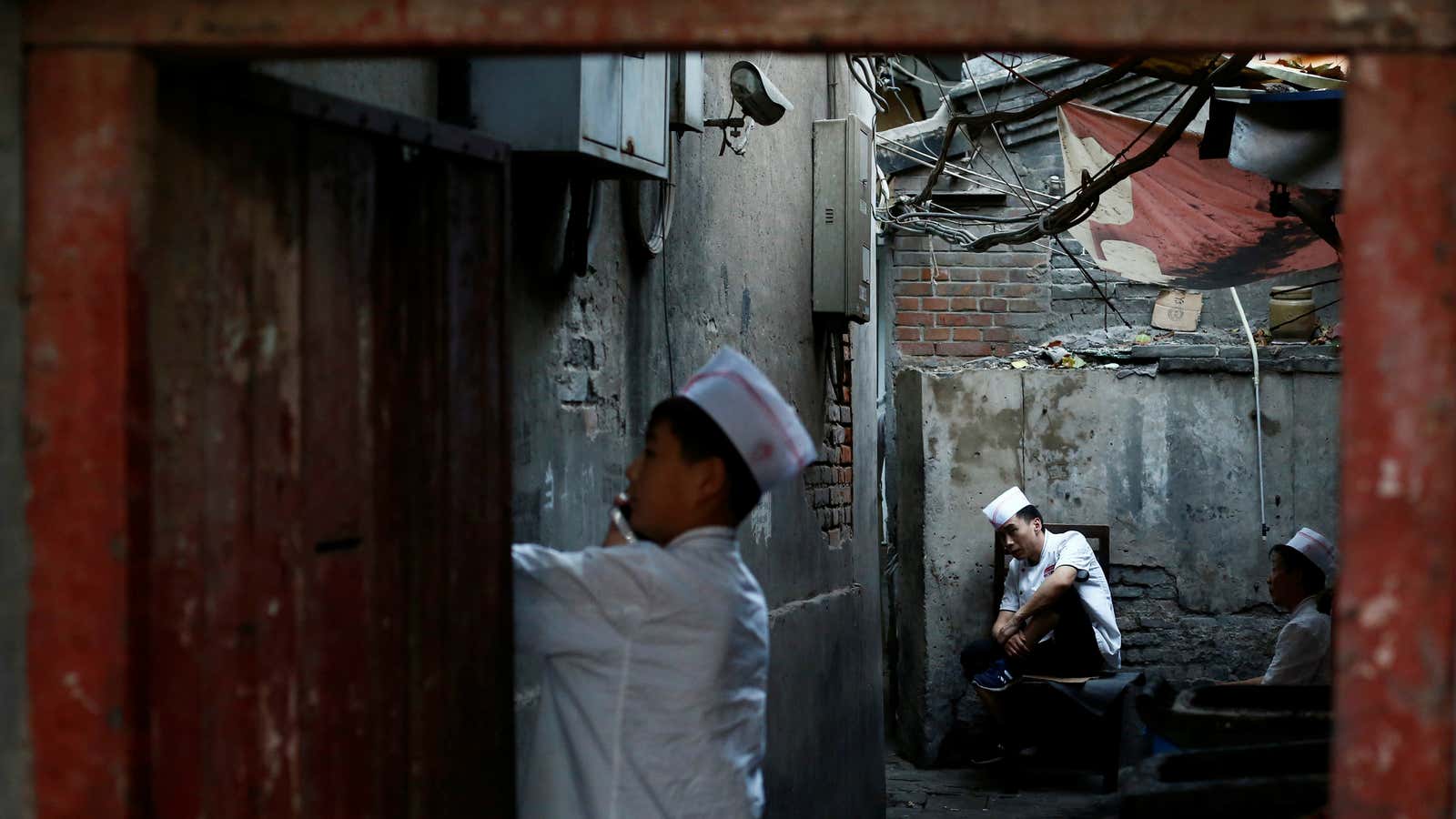If a restaurant dishwasher working in the US illegally wanted to leave his or her job, could they? Turns out, not necessarily.
In too many cases, people working in the American food system—from the agricultural fields where laborers pick the nation’s produce to the restaurants and bars that serve consumers food and drink everyday—are trapped in those positions. That’s according to a new report by the Polaris Project, a non-profit organization formed to investigate and report cases of modern slavery, in which people are harbored and then coerced into working or engaging in commercial sex acts.
It’s unknown just how much of the industry is fueled by workers who feel coerced into working those jobs, or who live in fear of what might happen if they quit. So the Polaris Project set up a hotline in 2007, inviting people to call in and report their experience. The group wound up analyzing more than 32,000 cases of human trafficking reported to it in the US through 2016. It also sorted cases into 25 categories.
Most of the people who called into the hotline to report trafficking situations were in the US illegally. Still, some did claim to be American citizens.
“Part of what we’re digging into is we’ve uncovered some cases where there are a few restaurants connected together to run a scheme,” said Polaris Project chief programs officer Sarah Jakiel. “There doesn’t need to be transportation or movement for trafficking to occur.”
According to a 2015 US Department of Labor report (pdf) on human trafficking, the government admitted that concerns had been raised about laborers in agricultural situations. Still, it did not delve into the problem as rigorously as did when reporting on countries in other regions of the globe.
Just how people are trafficked into situations can vary. It doesn’t always involve what’s depicted on television and in film, in which people are loaded into trucks in the dead of night and transported against their will into another region and industry.
The report was lauded as “a game changer” by an assistant attorney general in Colorado, who told NPR that labor trafficking is at least as prevalent as sex trafficking in the US. Finding and breaking the trafficking networks remains a major challenge, though. That’s one of the reason the Polaris Project has already received grant money from the W.K. Kellogg Foundation to investigate the food industry and how networks operate within it more closely.
“I believe there is a chronic and crucial underreporting from the restaurant sector,” says Jakiel. “And at what point does exploitative labor become labor trafficking?”
